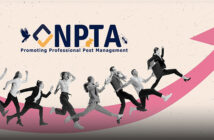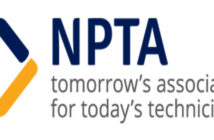The tenth National Pest Technicians Association (NPTA) rodent survey report published this week reveals that rat and mouse populations across the country are only just being held in check.
“The survey confirms we”re on a knife edge in keeping on top of rat and mouse populations,” said NPTA chairman, Peter Crowden. “What’s more, new regulations being proposed by the EU – click here for details – would tip the balance by banning the anticoagulants we rely on for the overwhelming majority of current UK control.”
|
These active ingredients are currently used in virtually every one of the 465,000 annual rat and mouse treatments reported by the Local Authorities responding to the NPTA 2008/9 survey. As well as underlining the scale of continuing Local Authority-organised rodenticide treatments, the survey report highlights the fine line the country is treading in keeping the lid on rat and mouse infestations. While reported treatments show a welcome fall from the previous year”s record level overall, both London and the Midlands recorded double digit year-on-year increases in rat treatments – almost 40% up on 2007/8 in the case of the capital. The analysis of comparative figures for the past decade suggests total Local Authority treatments are at an almost identical level to 10 years ago, with regular surges every two to three years. “Even with the highly effective rodenticides currently available to the industry, we are clearly only just keeping rats and mice at bay,” observed Peter. |
|
|
|
According to the report, the progressive withdrawal of free rodent control services over the past 10 years has caused an increasing number of infestations to be excluded from Local Authority reporting each year. This means that the real scale of the national problem has almost certainly grown very substantially in this time. The survey also confirms that only a minority of Local Authorities are currently providing rodent control services completely free of charge – around four in every 10 in the case of rats and half this number for mice. However, it also shows the majority still provide free services to some groups of residents and over three quarters retain their own direct control capacity. Despite intensive budgetary pressures, around one in every 10 of those currently offering free services has re-introduced them having previously charged. “Enlightened Local Authorities like these are setting a hugely valuable example for the majority in living up to one of their most important statutory responsibilities,” noted Peter. For the future Peter wants to see Local Authority and private sector pest controllers take a far more co-ordinated, better planned and, above all, less reactive approach to rodent control nationwide. At the same time, he says policy makers and advisers need to be aware of the extent to which modern lifestyles are increasingly playing into the hands of the rats and mice, and act to address this by better management of wild bird feeding, domestic waste and home composting, in particular. The single most vital thing everyone has to do in the coming few weeks however is to persuade EU policy makers of the critical importance of anticoagulant rodenticides. “Fail to do this and we can give up the idea of any effective rat and mouse control in most situations for the foreseeable future,” he said. To download a copy of the survey report – click here. |
||




